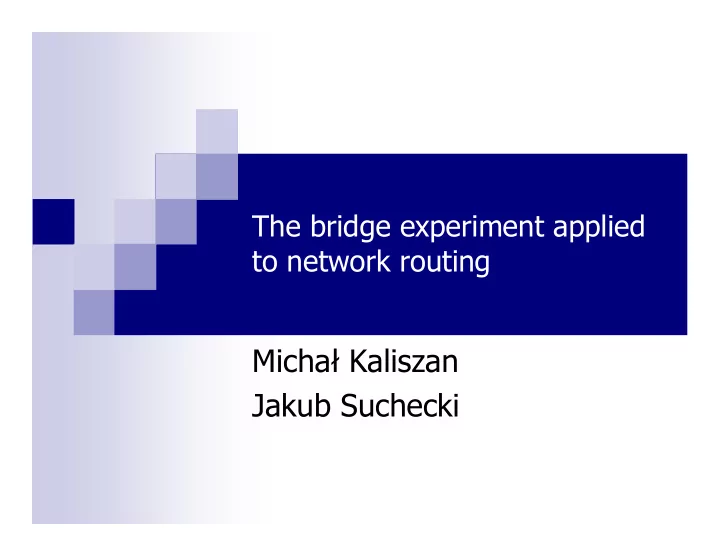

The bridge experiment applied to network routing Micha ł Kaliszan Jakub Suchecki
Bio-inspired vs. Classic approaches � overall throughput � reaction to failures � non-deterministic vs. deterministic
Graph generator � Parameters: � number of nodes � length of the shortest path between two designated nodes
Graph generator � Generated graph with shortest path (blue) � Time savings on large graph structures
Graph generator � Pheromone distribution (green) � Shortest path (blue)
Model of the optimized network � Two nodes chosen, with a known shortest path between them � Link between the nodes optimized simultaneously for transmission in both directions � Possibility of generation of an initial, suboptimal path between the nodes, marked by the initial pheromone distribution
Ant-based routing algorithm � Two groups of ants: ‘forward’ and ‘backward’ � Each time step new ants sent from the source node and the destination node � Two groups using different types of pheromones
Ant-based routing algorithm � Each group of ants update differently both groups of pheromones � ‘Backward’ ants update much stronger pheromones for the ‘forward’ ants, and opposite.
Parameters of the simulation � new ants sent each time step � speed of pheromone evaporation � pheromone drop � TTL of each ant
Simulation results � Parameters: � 100 ants per time step � TTL 50 � pheromone drop 0.2 � evaporation rate 0.8 � 200 nodes � shortest path: 15
Thank you for your attention! � Questions?
Recommend
More recommend